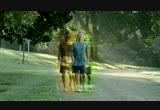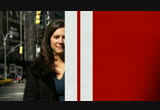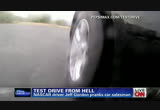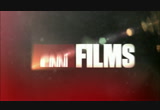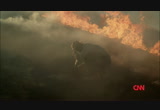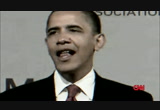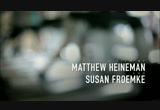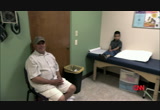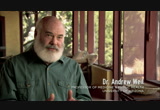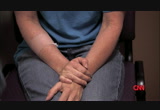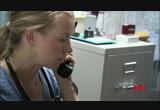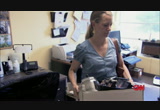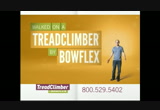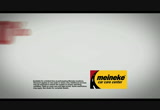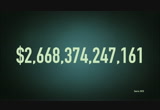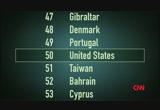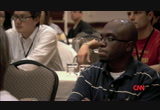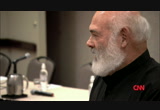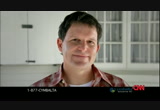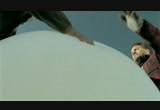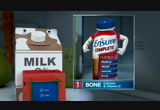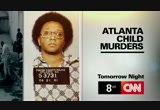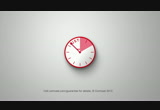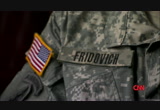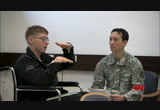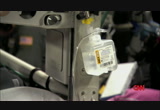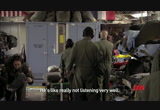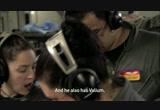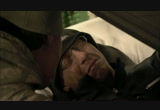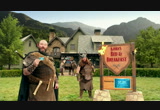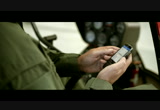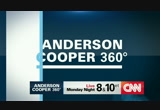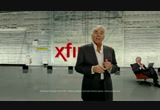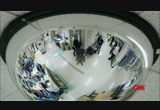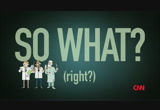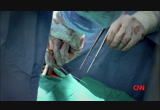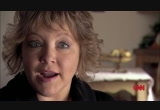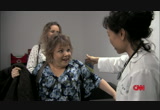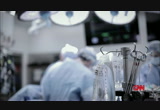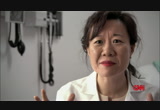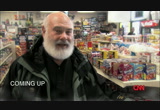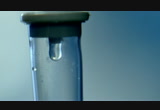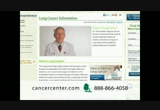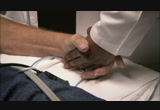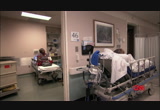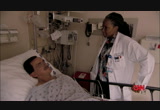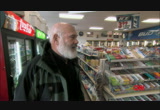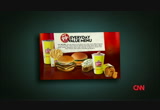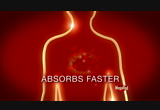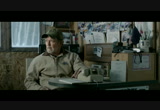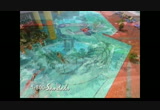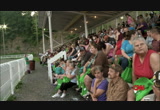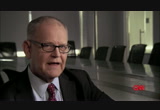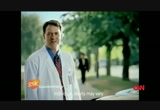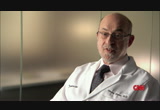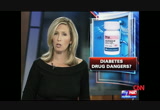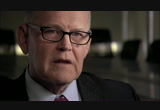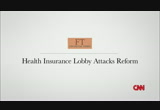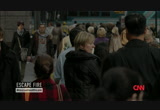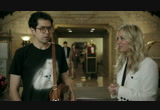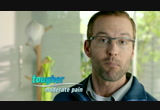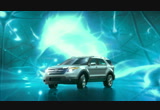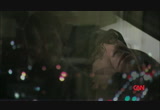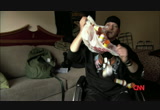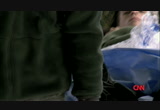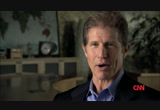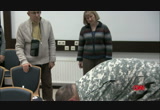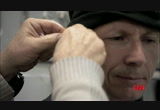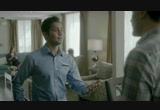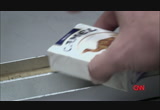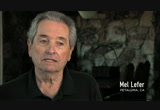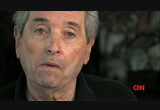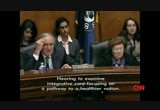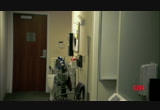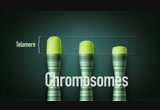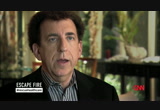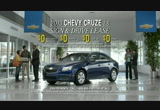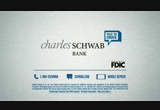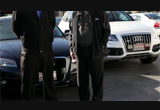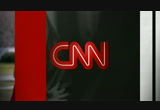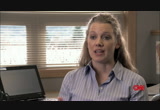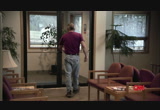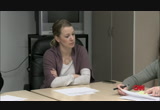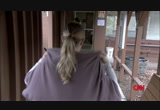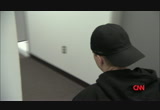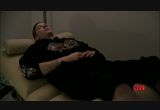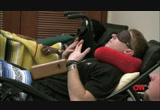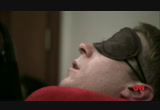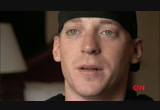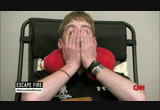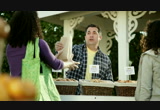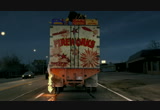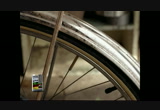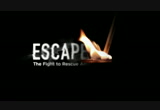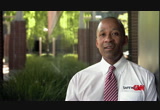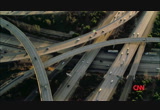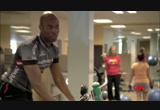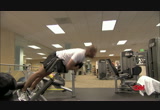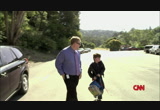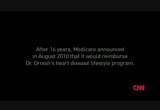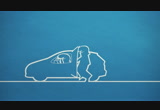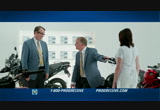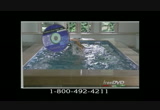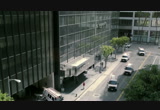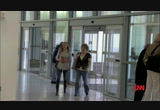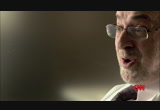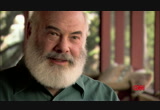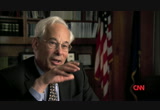tv Healthcare CNN March 16, 2013 8:00pm-10:00pm PDT
8:00 pm
8:01 pm
an unsuspecting car salesman gets the ride of his life. take a look. >> okay, ease off just a little bit. ease up. you are liable for any damages to the vehicle. please stop the car. stop, stop, stop! oh, [ bleep ]! you're an idiot. i'm going to kill you. >> it was all just fun. >> we should note the man behind the wheel has serious experience. that's jeff gordon. he disguised himself and took this poor car salesman on a wild ride. the entire thing was recorded for a pepsi max commercial. it's gotten more than 22 million hits since being posted just five days ago. we should note that many critics believe the video to be a fake. many people in "newsroom" think it's fake.
8:02 pm
pepsi and gordon remain mum on that. we thought it was cool enough to be our moment of the week. that poor guy. i'm don lemon at the cnn world headquarters in atlanta. thanks for watching. good night. good evening. i'm dr. sanjay gupta. up next, cnn films presents "escape fire: the fight to rescue american health care." stay tuned. afterwards, we're going to have a very important discussion on what we can do to live longer and healthier lives and avoid unnecessary costs and procedures. and now, "escape fire: the fight to rescue american healthcare."
8:03 pm
in 1949, a forest fire broke out the montana. smoke jumpers were parachuted in a team of 15 headed by a foreman named wag dodge. the fire exploded, moving over 600 feet a minute, faster than most people could ever run. so 15 firefighters were trapped. wag dodge had an idea. he knew that they would lose the race back to the top of the ridge, so he suddenly stopped. he lit a match, and he lit a fire at his own feet. and the fire spread around him. i imagine the other smoke jumpers thought the guy was crazy, but his idea was this, if i burn the fuel around me, when the fire come and overtakes me, i'll be safe. it became known as an escape fire. he tried to get the other smoke jumpers to join him, and nobody did. the fire overtook the crew,
8:04 pm
killing 13 men and burning 3,200 acres. wag dodge survived, nearly unharmed, in his escape fire. it's just tragic to think of the answer being there but just in the moment not able to see it. that's how embedded people get in the status quo. they can't recognize an invention when it's among them, and they can't give up their old habits. we're in mann gulch. health care, it's headed for really, really bad trouble. the answers among us, can we please stop and think and make sense of the situation and get our way out of it? it's the same challenge. >> we have had enough! >> what do you want? >> health care! >> when do we want it? >> now!
8:05 pm
>> all i hear is how we're going to give more people access to the present system and how we're going to pay for it. to me, that's not the only issue. the present system doesn't work and it's going to take us down. we need a whole new kind of medicine. health care reform was a good place to start, but it will do little to address the root problems. we don't have a health care system in this country. we have a disease management system. >> people often think it has to be a new drug or a new laser or something really high tech and expensive for it to be powerful. they have a hard time realizing choices we make in our lives can make such a powerful difference. >> we're in the grip of a very big industry, and it doesn't want to stop making money.
8:06 pm
>> at the executive level, what's most important is meeting wall street's expectations, and they have to. these for-profit companies by law have to serve shareholders. you almost forget that what you're doing is providing health care. >> the health care system is unsustainable. we're spending almost twice as much in america as any other country on earth. we're really mortgaging the future. not just the health of health care, but the health of a nation. what are you going to do?
8:07 pm
>> i got to go to work. >> what are you going to do at work? >> what i do every day, buddy. i love you. >> i love you, too! >> bye! >> bye! >> in a community health center like where i work, you see chronic illness, people not able to afford their medications, lots of psychiatric illnesses. >> i think we have about 25 patients today for dr. martin. i think five or six of them are on the waiting list. >> i'm sure we can probably squeeze them into the schedule. >> hello, mr. fields. let me take a listen to you. all right. who's next?
8:08 pm
instead of basing things on outcomes, on how good of a job we're doing, the government sets the reimbursement completely on the number of patients that we see. it doesn't matter how complicated they are, how much time that we spend on them, it's just a number, one, two, three, four, five. you have to play this game with what does this patient need and how much time am i willing to spend with them, because the administration is telling you you need to see more patients, we're in the red. and if you try and buck the system, someone says, what can we do to get your productivity up? i'm not interested in getting my productivity up. i'm interested in helping patients. >> in the year of for-profit medicine, the time allowed for patient visits has shrunk to a point where you've got seven minutes with a patient. >> can you feel this? >> just -- >> barely?
8:09 pm
>> yeah. >> okay. losing the sensation in your feet is part of the progression of diabetes, okay? >> it could get worse. people talk about two-minute doctors. literally, 30 patients an hour. things could move in that direction here, and this is not the choice of the doctor. >> as a primary care physician, we're supposed to be the people making sure the patients don't get sick and that they have everything they need to maintain health. but you end up being this revolving door. people come in and you try and fix one thing and they come back for the same thing over and over and over. you just never get to the bottom of what's causing all of these problems that they are having. michelle? tell me what happened. >> i just tried to cut my arm off -- >> what were you trying to do? >> i just want to end it. i'm tired of it. so tired of it. >> are you taking your medication? >> yeah.
8:10 pm
>> a great deal of what's done in conventional medicine is put band-aids on things or suppress symptoms. >> have you cut yourself before? >> when i was a kid. >> you used to cut? lexapro's the only thing you're on right now? >> this is a problem with a lot of our suppressive treatments. they may keep the disease process going and they may strengthen it over time. it's much better to try to work at a deeper level. >> i'm going to make a phone call and try and get some wheels in motion so that we can get you the help you need. okay? >> okay. >> so, we need the crisis counselor, then. yes, this is dr. martin over at la clinica. i need to speak with the crisis worker. there's no crisis worker at lunchtime? i have an acutely suicidal patient in my office that i need help with.
8:11 pm
she's still taking her lexapro, but it's obviously not doing the job. where i'm at right now, patients are in desperate need of care. the way that the system is set up, you can't be effective. i became a doctor because i care about patients and working here, i can't help them. to feel that way when you come home is demoralizing. there has to be a different way of doing things. so, i decided to leave. it's hard to say good-bye to the patients. i took care of them and i was responsible for them and just
8:12 pm
worrying about if somebody else is going to do for them what they need. i want to give to people and i want to help people, and i wasn't able to find that here. going to go look for it. we spend a spectacular amount of money on health care. the really astonishing part about the fact that we spend more is we have worse health outcomes. [ male announcer ] when you wear dentures you may not know that your mouth is under attack, from food particles and bacteria. try fixodent. it helps create a food seal defense for a clean mouth and kills bacteria for fresh breath.
8:14 pm
8:15 pm
the history of how the american health care system grew is not one of order, it's one of sort of haphazard chaos. >> everybody's doing what makes sense to them individually. we pay hospitals to be full, so they try to be full. we pay doctors to see patients, so they see a lot of patients. we create a public expectation more is better, which isn't true. people seek more. everybody's doing their job, we just design the jobs wrong. >> physicians are well intentioned. even when bad things happen, it's not because people have bad intentions, it's that our system is all fouled up. >> we spend a spectacular amount of money on health care. just sheer numbers, $2.7 trillion per year. the average per capita cost of health care in the developed
8:16 pm
world is about $3,000. in the united states, it was around $8,000 annually. we spend one heck of a lot of money. >> the health care system isn't affordable anymore. who pays for that? where does that money come from? this is all coming out of our pockets. it's your money. >> the really astonishing part about the fact that we spend more is we have worst health outcomes. >> if you need real serious technology today, like a complex cardiac surgery, you're lucky to be in this country. rescue care is second to none. as an overall system, no, we're not anywhere near at the best in the world. i mean, look at our results. our life span isn't even in the top 20. >> we have a disease care system, and we have a very profitable disease care system. and the disease care system actually, i mean, if it really was honest with itself, it
8:17 pm
doesn't want you to die and it doesn't want you to get well. it just wants you to keep coming back for your care of your chronic disease. >> most of this huge effort of the health care industry is devoted to intervention in established disease and the majority of that disease is lifestyle related and preventible. i mean, to talk about how we shift toward -- away from disease intervention to prevention and health promotion, that requires a massive rethinking about medicine and health care at all levels of society. it has to do with expectations of patients. it has to do with the training of physicians. it will require a huge effort. what's wrong with medical education is that it simply doesn't address whole subject areas that are absolutely essential to understanding human beings, health, illness, and treatment.
8:18 pm
i mean, an obvious one is nutrition, which is almost omitted from medical education. so, in 1994, i started a fellowship for people who had completed medical school to retrain physicians. >> we want to expose clinicians to a broader way of seeing the patient, a deeper understanding of healing and a larger toolbox from which to choose for therapies. >> where are you from? >> i'm from virginia. i actually practice emergency medicine at the university of virginia in charlottesville. there have been some trends in health care that make me uncomfortable. i felt like there's got to be something different, something better. >> my medical training was just focused on giving these patients pharmaceuticals or giving them expensive tests to treat the condition after it occurred. i had no knowledge of ways to prevent heart attack or stroke
8:19 pm
or cancer or things like that. >> i had to do the fellowship, because it was kind of my little ray of hope that things could be better, things can be done differently. and somebody's going to teach me how to do that, so i'm going to do it. >> in western medicine, all of our effort is on dispelling evil. if somebody has an infection, we give anti-infectious agents. if somebody has hypertension, we give anti-hypertension drugs. it's getting rid of the bad thing. we do nothing about supporting the good, that the body can and wants to be healthy. both of these approaches are necessary, but it would be great if we had a better balance in western medicine. >> the kinds of interventions that we have come to favor in this country are inherently costly because they are dependent on expensive technology, and that includes pharmaceutical drugs. i think there's some very good drugs out there, i think drug treatment has its place. i take a pharmaceutical drug myself, but if there's one thing
8:20 pm
that i would love to see you begin to implement in your own practice and teach others about, it's to try to change this mindset that has so completely taken hold in our culture on the part of both doctors and patients that drugs are the only legitimate way to treat disease. i mean, where did that idea come from? >> we spend $300 billion a year on pharmaceuticals. that's almost as much as the rest of the world combined. $300 billion on drugs. >> in the 1950s, americans took pharmaceutical medication at about 10% of the rate they do now. >> we're taught with the commercials on television, why do we need to wait? we can just take a pill right now. >> when i watch the networks, half the ads are for pharmaceutical agents. that isn't true in canada. it's not true in the united kingdom. it's not true in france and
8:21 pm
germany. the only other country, by the way, the new zealand. new zealand and the united states, the only two countries in the world where you can advertise prescription drugs. what does that do? well, it drives demand. the ads always end with the same phrase, ask your doctor. and people do. and doctors wanting to please their patients will often prescribe it. he was issued the bottle today with 20 in it and ten are missing. >> okay, i need some help over here. [ man ] i got this citi thankyou card and started earning loads of points. we'll leave that there. you got a weather balloon, with points? yes i did. [ man ] points i could use for just about anything. go. ♪ keep on going in this direction. take this bridge over here. there it is! [ man ] so i used mine to get a whole new perspective. [ laughter ] [ male announcer ] earn points with the citi thankyou card
8:22 pm
and redeem them for just about anything. visit citi.com/thankyoucards to apply. and redeem them for just about anything. today is gonna be an important day for us. you ready? we wanna be our brother's keeper. what's number two we wanna do? bring it up to 90 decatherms. how bout ya, joe? let's go ahead and bring it online. attention on site, attention on site. now starting unit nine. some of the world's cleanest gas turbines are now powering some of america's biggest cities. siemens. answers.
8:25 pm
overmedicating is a huge problem in society and the military is no exception. >> this is a national problem for us, you know, we're seeing the military just being a microcosm, i think, of the problems society's having. >> soldiers' use of prescription drugs has tripled in the last five years. >> the army says this is all linked to the rising number of soldier suicides. in fact, more soldiers died last year from non-combat injuries than during war. >> i can see why there's a link between opiates, dependency, misuse, and suicide. i was taking 64 pills a day of combinations of roxicet and oxycotin.
8:26 pm
there's a contradiction to what we do. u.s. caregivers are told you got to keep me pain-free, you're going to do that. we have to be mindful to those points in time where you can intervene and say enough's enough. we have to find the right mix of treatments for the guys, and the answers are not in a sack of pills. if it happened to me, it happens to a whole lot more people that are almost invisible to the system. >> eight ieds through this deployment. carry a lot of weight because i'm infantry. mountains of afghanistan are not easy to climb, so pain in my back. treated for sciatic nerve, back, l2, l3, l4, will l5, swelling,
8:27 pm
side of my brain and extreme ptsd. >> with ten years of ongoing wars, the amount of suffering that's going on in the military right now is tremendous. when you go over into a war zone where you see your buddies die or you get injured, that's going to tax anybody. and we see that suffering. during the aerovacs of wounded soldiers, the approach to pain that currently exists is to get medications. >> do you have any pain right now? okay, i can see what you can have for pain, all right?
8:28 pm
he asked for pain medication. they don't say how much they gave him. but he can have anywhere between 5 and 10 milligrams of morphine. >> i want to see what they've given him. >> he's sleepy? >> yeah. it's very hard for us as nurses to treat for pain, because there's no thermometer we can stick in and say oh, 7 out of 10 pain. we have to basically treat the patient for whatever they say, and a lot of times patients become so drowsy they are not aware of how much they're taking. >> so uncomfortable and i need to pee again. >> you need to pee? all right. okay. i need some help over here. the patient just fell off. >> did he try to get up without anybody knowing? >> i tried to get him up, he just rolled himself out. he's not listening very well. >> you don't want him to fall again. put him on the bottom on the other side. >> i'm going to check his chart
8:29 pm
real quick and find out what he got. >> let me get that jacket away from him. he's, like, clutching his head. here you go. this is what he's got left. >> he was issued this bottle today with 20 in it and ten are missing. he's taken 20 tablets. >> oh, my god. that is ridiculous. >> he's going to stop breathing if he's taken too much narcotics. and we'll be doing cpr on the patient. at this point, we will administer the medication. >> move over here. >> take them away from him. >> do you want to do a pill count with me? >> we'll do it at the front. >> okay. ten allotted. this is prazosin. he's got lunesta and also has valium, lortab, naproxen. percocet.
8:30 pm
and norco, which is percocet. >> i'm not sure what is what. >> not in there? >> these are all name brand. >> oh. only thing we can do is separate them out, because there's no way for us to tell which are which. >> these are all one person's? >> they are all combined. we don't know what they are. >> where are you coming from? >> afghanistan. >> afghanistan? how long were you there? >> nine months. >> nine months? glad to have you home. do you want to tell me about some of those that you lost?
8:31 pm
>> a platoon of 23. came off the mountain with only eight. >> came off the mountain with only eight? you've seen a lot. you know, i'm only 34 years old. i can't be having heart problems. well, i went into the hospital, and they told me i had had a heart attack. with the spark miles card from capital one, bjorn earns unlimited rewards for his small business. take these bags to room 12 please. [ garth ] bjorn's small business earns double miles on every purchase every day. produce delivery. [ bjorn ] just put it on my spark card. [ garth ] why settle for less? ahh, oh! [ garth ] great businesses deserve unlimited rewards. here's your wake up call.
8:32 pm
[ male announcer ] get the spark business card from capital one and earn unlimited rewards. choose double miles or 2% cash back on every purchase every day. what's in your wallet? [ crows ] now where's the snooze button? [ crows ] we know the value of your at ueducation of phoenix is where it can take you. [now arriving: city hospital] which is why we're proud to help connect our students with leading employers across the nation. [next stop financial center] you want to make sure it goes up and stays up. [ chirp ] with android apps, you get better quality control. so our test flights are less stressful. i've got a lot of paperwork, and time is everything here. that's why i upgraded to sprint direct connect. [ chirp ] and instant push-to-talk nationwide. [ male announcer ] upgrade to the new "done." [ chirp ]
8:33 pm
with instant push-to-talk, three times the coverage, and android productivity apps. now when you buy one motorola admiral rugged smartphone, for ninety nine ninety nine, you'll get four free for you business. visit a sprint store, or call eight five five, eight seven eight, four biz. i really like your new jetta! and you want to buy one like mine because it's so safe, right? yeah... yeah... i know what you've heard -- iihs top safety pick for $159 a month -- but, i wish it was more dangerous, like a monster truck or dune buggy! you can't have the same car as me! [ male announcer ] now everyone's going to want one. let's get a jetta. [ male announcer ] volkswagen springtoberfest is here and there's no better time to get a jetta. that's the power of german engineering. right now lease one of four volkswagen models for under $200 a month. visit vwdealer.com today. i'm just red carpets, big spectacles and the a-list. that's only the beginning.
8:34 pm
8:35 pm
dark matter is a discovery by astronomers that there is a huge amount of the universe that we can't see. it's not visible, but it's there. we know it's there. and in some ways, i think of a lot of what's happening in health care is kind of dark matter. it's unseen, but it's there and it's very, very powerful. we tend to just see the light of health care, we see the goodness of health care, the potential of helping. i was at "u.s. news and world report" and wrote cover stories about how great the newest and greatest treatment and pill and procedure was, but, in fact, the more i looked, the more i found that there's all this stuff in medicine that we don't think about that is actually harmful. when a team from dartmouth
8:36 pm
medical school mapped medicare payment, it found disconcerting differences from one part of the country to the other. for example, in 2007, the average medicare recipient in miami tallied more than $15,000 in health care bills, whereas a recipient in minneapolis only cost the government about half that amount. and it wasn't because procedures were more expensive in miami than in minneapolis, the dartmouth study showed the patients in places like miami were receiving more care. more tests, more drugs, more time in the hospital, more invasive operations than patients in other parts of the country even though the patients in miami weren't any sicker than their neighbors. but so what, right? we want more specialists. we want more procedures. we want more tests. or at least we think we do. and that's the problem. because what we think is best for us often isn't.
8:37 pm
what the dartmouth group discovered is that the patients in the most costly regions where medicare spent more money on patients, those patients did not have better health outcomes, and, in fact, they were more likely to die. >> if you look at health care in america, you're twice as likely to get your knee replaced as you are in western countries with the same standard of living. you're two or three times as likely to get a heart catheterization or have a stent in your coronaries. we've set up a system that often pushes physicians and hospitals in the entire health care system into doing more. driven by these perverse economic incentives, we are doing a lot of procedures to people that they don't need. to a man with a hammer, everything looks like a nail.
8:38 pm
>> okay, ready? now you're going to get the scissors. i started getting sick in my 30s. i started having really, really bad chest pain. >> there we go. a flower for you. >> oh, it's so beautiful. i just had been ignoring it, because i thought, you know, i'm only 34 years old. i can't be having heart problems. but one evening, i sat straight up in bed with the worst chest pain. so, i went into the hospital and they told me i had had a heart attack. i was 35 at the time and was scheduled for open-heart surgery. and i thought, once i get this, i won't have the blockages anymore. they'll actually fix it. little did i know that it was followed by years of the same thing over and over and over again, a heart cath, get another stent. heart cath, get another stent.
8:39 pm
until my doctor said i don't know what else to do for you, there's nothing else i can do. >> contrary to what most people believe, getting a stent in your coronary, if you have stable chest pain, will likely relieve your pain, but it will not help you live longer, and it will not protect you from having a heart attack. it only reduces symptoms. and the problem is, some of those procedures will lead to bad outcomes. >> i'd started doing research about where in the united states do i have to go to get the best heart care, and ironically it was only two hours away at the cleveland clinic. >> how are you? >> i am great. look at the thinness. >> i know, you look really good. >> since last year i've lost 21 pounds. >> oh, my god. yvonne came to see me when she was sort of at her wits end.
8:40 pm
she had had bypass surgery at an early age. 27 cardiac catheterizations and well over seven stents. this is just an unbelievable amount of stents and cardiac caths. i'm sorry, it's going to get pretty tight. i can't tell you how shocked we were when we saw her the first time, because here was a young woman whose diabetes was not well controlled. her cholesterol was never well controlled, and her high blood pressure was never well controlled. if someone had talked to her, i think someone had really teased out her chest pain and shortness of breath, i think many of her cardiac catheterizations and stents would not be necessary. you have all these stents, and these stents, once they go in, they never come out and they're part of you. now we're kind of dealing with the consequences. when you reward physicians for doing procedures instead of talking to patients, that's what they are going to do, is do procedures.
8:41 pm
>> the vast majority of doctors in this country are paid by a fee for service system. that simply means they get paid for each office visit. if they are surgeons, they get paid for each procedure. if it's a radiologist, they get paid for each ct scan they deliver. >> if i spent five minutes for you and put in one of these stents, probably get paid $1,500. for me to spend 45 minutes on an established visit with a patient to make sure they are doing their exercise, make sure their diabetes is going okay, and to try to figure out what their true problem is, probably get paid $15. it's a completely irrational system. >> fee-for-service rewards physicians for doing more. it doesn't reward them for doing a better job. it doesn't reward them for keeping their patients healthy.
8:42 pm
it rewards them for delivering more care. >> i was trying to figure out how much yvonne's care would have been over the years. and i think it's well over $1.5 million. but it's more than cost. it's just so much more than money. the psychological trauma of every one of those multiple cardial catheterizations every time she had a chest pain coming into the e.r., and unfortunately there are lots of yvonnes out there. there's the bright blue slush. we have made all of this unhealthy food the cheapest and most available food. people eat what's cheap and what's available. (music throughout)
8:43 pm
why turbo? trust us. it's just better to be in front. the sonata turbo. from hyundai. gives you 1% cash back on all purchases, plus a 50% annual bonus. and everyone but her... no. no! no. ...likes 50% more cash. but i don't give up easy... do you want 50% more cash? yes! yes?! ♪ [ male announcer ] the capital one cash rewards card gives you 1% cash back on every purchase, plus a 50% annual bonus on the cash you earn. it's the card for people who like more cash. ♪ what's in your wallet? why? and we've hit the why phase...
8:44 pm
why? all stations come over to mithis is for real this time. step seven point two one two. verify and lock. command is locked. five seconds. three, two, one. standing by for capture. the most innovative software on the planet... dragon is captured. is connecting today's leading companies to places beyond it. siemens. answers. capella university understands nurses are dealing with a than wider range of issues. and there are ever-changing regulations. when you see these challenges, do you want to back away or take charge? with a degree in the field of healthcare or nursing from capella university, you'll have the knowledge to advance your career while making a difference in the lives of patients. let's get started at capella.edu.
8:46 pm
they're coming. yeah. british. later. sorry. ok...four words... scarecrow in the wind... a baboon... monkey? hot stew saturday!? ronny: hey jimmy, how happy are folks who save hundreds of dollars switching to geico? jimmy: happier than paul revere with a cell phone. ronny: why not? anncr: get happy. get geico. fifteen minutes could save you fifteen percent or more. hello, dr. ross. i am back in the chest pain center with a pretty sick patient, and i'm going to need you to call attending, too. the emergency department is the safety net of health care. we see a lot of the chronic
8:47 pm
conditions that affect many americans that have gone untreated for sometimes months, but sometimes years. and, of course, the natural end point is going to be in the emergency department. let me just take a listen to you. it would be so wonderful if their chronic health conditions could be prevented through effective primary care. >> there's a saying in health care policy that 20% of the patients account for 80% of the costs, and the majority of those costs are when they are repeatedly hospitalized. they are patients with heart failure, they are morbidly obese patients, they are often poor patients, but not always. one of the ways to think about saving money in health care is to focus our energies on that 20% of patients and think about treating those people in a more effective way. >> i just want to review this pain.
8:48 pm
it's here, right in the center of your chest. okay. and is it still traveling into your neck? >> it's traveling down my arm, my neck, and my head and ears are buzzing and rings. >> what was it, mr. linton, that finally made you say, okay, that's it? i'm going to the emergency department. >> i've been to the emergency department a few times before, and the last time i was having chest pains, not like this. this is a lot worse. they sent me home with them. >> how long ago was that? >> that was, what, a month and a half ago? when i had my first heart attack, did the cardiac catheterization, put the thing up there and put a stent in my heart, because i had a clogged artery, and that worked for a while. couple weeks, i felt like i was okay. then all of a sudden i started getting chest pains again. so here i am going in and out of the hospital to find out what's going on. >> do you have any eating habits that you think might -- >> no, i eat the regular food and stuff. >> what's the regular food? >> eggs, sausage, grits, bacon. more healthy diet?
8:49 pm
>> what do you think about that? >> yeah. >> if i had to. >> if you had to? well, you have a stent in your heart, right? >> yeah. >> all right. and you've had heart attacks. and you're here today with chest pain. >> yeah. >> when do you think it would be good to try it? >> once i found out what was really wrong with me. >> we've become a culture where you drive up, you get what you want, you get it fast, you get it right away, and you drive off. and that being applied to health care just doesn't work. most diseases don't happen overnight. sometimes they are related to lifestyle habits. sometimes it's related to what the individuals actually have access to. >> i have no health insurance.
8:50 pm
sometimes i go to the hospital and that's the only health care i ever got. i never had a personal doctor, family doctor, nothing, all my life. i stopped taking my medicine months ago. it's too much. can't afford it. if you go out and buy heart healthy diet food, it's going to cost you more money than anything. >> hippocrates said, "let food be your medicine and let medicine be your food." i think that's a good place to start. as a society, we have to make it easier and more affordable for people to make better lifestyle choices than worse ones. there's the bright blue slush. this is major reason why we see kids getting fat in this country.
8:51 pm
let's see what we got here. one of the great contributions of america to world cuisine, you know, fake bread. we take grains and we've turned them into products like this, which rapidly raise blood sugar, provoke insulin responses, promote weight gain and genetically susceptible people, which is most of us. some people, this is all they eat, food of this sort. it's not whole food as nature produces it. it's completely changed food. you know, our grandparents did not eat stuff like this. we have made all of this unhealthy food the cheapest and most available food. people eat what's cheap and what's available. >> mcdonald's put salads on the menu, but turns out the salad is $6, the burger is 99 cents. if you're on a fixed income, what are you going to do for your family? these calories are cheap only when you buy them, but when you look at the overall cost to society of these cheap calories
8:52 pm
that are so junky, they are really the most expensive. >> it's scary how fast obesity is spreading in our country. obesity leads to heart disease and strokes and diabetes. >> if trends continue through 2020, up to one-fifth of health care spending or almost $1 trillion annually will be devoted to treating the consequences of obesity. insurance companies have always been able to regulate the rates they charge. they can pretty much get away with increasing the rates as much as they want to. with the spark cash card
8:53 pm
from capital one... boris earns unlimited rewards for his small business. can i get the smith contract, please? thank you. that's three new paper shredders. [ boris ] put 'em on my spark card. [ garth ] boris' small business earns 2% cash back on every purchase every day. great businesses deserve unlimited rewards. read back the chicken's testimony, please. "buk, buk, bukka!" [ male announcer ] get the spark business card from capital one and earn unlimited rewards. choose 2% cash back or double miles on every purchase every day. told you i'd get half. what's in your wallet? you name it...i've hooked it. but there's one... one that's always eluded me. thought i had it in the blizzard of '93. ha! never even came close. sometimes, i actually think it's mocking me. [ engine revs ] what?! quattro!!!!!
8:56 pm
the american health care system, it's generating rivers of money that are flowing into very few pockets, and those are the pockets of the manufacturers of medical devices, the big insurers, pharmaceutical companies, and the owners of those pockets do not want anything to fundamentally change. >> i don't recall any time telling a lie, but i know that
8:57 pm
there were many times that i didn't disclose full information, and i was the company's chief spokesman. i was head of corporate communications, which means i was the top public relations officer for the company. when you're in the inner circle of a health insurance company, what's most important is meeting wall street's expectations, and they have to. these for-profit companies by law have to serve shareholders. people go in and out of health plans. they may be a member of a health plan for a year and maybe no longer. you don't necessarily make a lot of investments in preventive care for someone who's not going to be a part of your health plan for a long period of time. it just doesn't work out financially. the only way that you can continue to make the profits that you are expected to make is to charge more for the policies. insurance companies have always been able to regulate the rates they charge. they can pretty much get away
8:58 pm
with increasing the rates as much as they want to. you almost forget that what you're doing is providing health insurance. it's all about the numbers and how many millions of dollars, if not billions of dollars, you're earning in profits. in the summer of 2007, i read about a health care expedition that was being held by remote area medical a few miles from where i grew up. i decided out of curiosity to go check this out. all these folks have driven from 400 and 500 miles away waiting to get care that was providing to them for free.
8:59 pm
the folks who were there were not trying to shirk their responsibilities. they couldn't get insurance. they either couldn't afford it, or they worked for small employers that had been purged by big insurance companies. it was either come and get care there or not get care at all. and every year they have to turn people away. it was like something that i could never have imagined i'd ever see in this country. and i knew what i was doing for a living was making it necessary for those folks to stand in line to wait for care in animal stalls and barns. i ultimately had a crisis of conscience, because i was not at all proud of what i was doing. i had difficulty sleeping at night. there were even times, honestly, that i looked in the mirror and said, how did you get here? i just could not continue doing what i was doing.
9:00 pm
>> good morning. our forefathers in medicine were really about patients. it was about a passion for healing. when medicine became a business, we lost our moral compass, and i think we're in a great deal of trouble because of that. >> managing type 2 diabetes can be hard. adding avandia can help. >> there was a drug on the market, avandia. it got fast tracked by the fda. got approved very quickly. it was massively marketed, and by 2006, this drug became the largest selling diabetes drug in the world. we're talking about a $3 billion or $4 billion a year drug. >> i got my blood sugar under control. >> he really did. can adding avandia help you? >> i was doing a google search,
9:01 pm
and what i found was a website in the united kingdom where the clinical trials done with disclosed. and what i saw actually made me physically ill. as i looked at trial after trial, there were more heart attacks in the avandia group. it was so consistent. you didn't have to be a statistician or in the word's of my old friend bob dylan, you don't have to be a weatherman to know which way the wind blows. there was, obviously, a problem. about a 30% increase in the risk of heart attack and related complications. and the company did nothing. they told no one. they did not tell physicians. they did not tell the fda, and they did not tell patients. >> cleveland clinic cardiologist dr. steven nissen decided to do his own review. >> now, the leading cause of
9:02 pm
death in diabetes is heart disease, 70% of all the deaths in diabetes are heart disease. having a diabetes drug that increases the risk of heart attack by nearly one-third is a public health catastrophe, and the company didn't tell anybody. >> a senate investigation accuses the food and drug administration of ignoring research. >> finally, the fda put severe restrictions on the drug. >> did you have, you know, a lot of money at stake here. >> they worked very hard to keep these numbers from the public. >> fda advisory committee started hearing evidence on whether avandia is so unsafe it should be pulled off the market altogether. >> litigation involved and the company set aside $6 million to settle lawsuits. the documents are coming out in these court suits, it looks worse and worse.
9:03 pm
the independent safety officials at the fda estimates somewhere between 50 and 200,000 deaths or heart attacks due to the drug. we're not talking about a handful of people here. this drug was the number one selling diabetes drug in the world in 2006. it's just a terrible tragedy for patients. >> there's the assumption that people who run government, elected officials, members of congress, but it's not true in many cases. the power lies with corporations and corporate interests and the lobbyists that they buy. >> good morning, folks, how are you?
9:04 pm
>> i was almost as surprised as anybody to see the reports that i was the most frequent visitor to the white house during the health reform debate. it was important to keep expressing the hospital's position. it's an expensive world to live in in terms of getting your voice heard in d.c., but that's the whole function of advocacy. >> how powerful are lobbyists in the health care system? infinitely. >> what gives lobbyists power is the amount of money they have for campaign contributions. >> we've been trying to reform the health care system for a hundred years. it goes back to teddy roosevelt. these companies will do whatever it takes to make sure there's no new laws or regulations to hinder their profits. >> the health care reform bill
9:05 pm
that was enacted achieved two of the insurance industry's major objectives. it includes the mandate, the requirement that we all have to buy their coverage. that was job number one for them. job number two was to make sure there was not a public option. they didn't want to have a new competitor. they had to live with some of the new consumer protections in the bill that does make it illegal for companies to just cancel someone's policy because of a preexisting condition. what the insurance industry's objective is, is to try to weaken those consumer protections over time and to try to influence how the law is being implemented. >> because of the money that's involved, getting people to do the right thing for the american people has become extremely difficult.
9:06 pm
medications i was on. do you understand? that is how many medications i was on. why don't you use bengay zero degrees? it's the one you store in the freezer. same medicated pain reliever used by physical therapists. that's chilly! [ male announcer ] bengay zero degrees. freeze and move on. [ male announcer ] bengay zero degrees. michael, tell us why you used to book this fabulous hotel? well you can see if the hotel is pet friendly before you book it, and i got a great deal without bidding. and where's your furry friend? oh, i don't have a cat. now you can save up to 50% during priceline's spring hotel sale use promo code spring for additional savings on all express deals, including pet friendly hotels.
9:07 pm
express deals. priceline savings without the bidding. from capital one... boris earns unlimited rewards for his small business. can i get the smith contract, please? thank you. that's three new paper shredders. [ boris ] put 'em on my spark card. [ garth ] boris' small business earns 2% cash back on every purchase every day. great businesses deserve unlimited rewards. read back the chicken's testimony, please. "buk, buk, bukka!" [ male announcer ] get the spark business card from capital one and earn unlimited rewards. choose 2% cash back or double miles on every purchase every day. told you i'd get half. what's in your wallet? told you i'd get half. do you guys ride? well... no. sometimes, yeah. yes. well, if you know anybody else who also rides,
9:08 pm
9:09 pm
if our civilian health care system is smoldering and we find out it is going to catch fire and be unsustainable because of the costs, the military system is already on fire. it is a burning platform and they see this. the costs are going through the roof, and the ability to help these service members and their families recover and repair and come back to a functional life is getting less and less. >> i was in the worst place in afghanistan. i was in the most intense battleground that you can ever be in. i lost a lot of good men. still bothers me to this day. i'm two and a half months out of combat.
9:10 pm
my very best friend from war, he was on narcotics. he overdosed. respiratory shutdown. i lost him. and from that point on i realized that i don't want to be on this. i don't want to go down the same path. i came to walter reed. i was on valium just for the anxiety. i was on antidepressants. i was on trazodone. clon pin. i was so dependent on my pain medication. this -- medications i was on.
9:11 pm
do you understand? that was how many medications i was on. when you're injured they feed you, feed you, feed you all this stuff. it's addictive. it is so addictive. i'd rather be shot again than go through withdraws of coming off that medicine. no soldier should have to go through this. >> as we've pushed medical innovation and capability to the leading edge of the battlefield where we can save their life, and we've got some guys who have have some horrific injuries and getting narcotics for longer periods of type and at risk for
9:12 pm
dependency, and that is what we are trying to avoid. the army sergeant general directed that we establish the pain management task force to take a look at alternatives to narcotics. >> there's very large randomized trials done at multiple centers that demonstrated acupuncture works, so we put together a study to see if we can actually insert this simple acupuncture technique during the aerovacs of wounded soldiers to walter reed and other medical centers in the united states. the question was, can we relieve their pain and reduce the amount of medications that they are on so by the time they get back, they are not snowed under on multiple medications. >> welcome to germany. welcome home. i know you're heading home and you're excited. >> what it first seems like strange bedfellows, mind/body practices and sort of the hard core military actually is an opportunity that they jumped at because of the pragmatic need
9:13 pm
and nature that the wars had driven them to respond to. >> it wears on your lower back wearing, you know, a 40-pound vest. and it's got to the point where the pain's radiating from my back to my hips and down to my thighs. that's it. that's my routine. >> first one's going in. >> how's your pain, sir? >> i feel like i'm warming up a little bit. impressive. impressive for it to react that quickly. >> okay. bend down. >> pretty good. >> any pain? >> not when i'm doing that. >> normally you would? >> oh, yes. i haven't touched my toes in
9:14 pm
months. >> that means we're getting the needles in the right place. >> haven't gotten near my toes in months unless i do this. >> hi. how are you feeling? >> i have pain, but it's more of an annoyance than it is pain. just sore. >> if you didn't have the acupuncture needles, how do you think you'd be feeling? >> i'd be chomping narcotics. >> oh, you would? >> oh, yeah. >> so, you haven't taken anything? >> no. >> because of that? that's good. >> 15 years ago, we did a consensus conference at the national institutes of health and we asked the question, do we have good evidence to show that acupuncture is safe and effective for any condition? they said, absolutely, it's been demonstrated that acupuncture is
9:15 pm
safe and effective, especially with postoperative and injury pain. 15 years later, you can't walk into your average hospital today and get acupuncture after an operation. the problem is not that it doesn't work, the problem is that we haven't figured out how to get it into the system so that we can make it widely available to the population. when you're doing something that has never been done before, it's not universally accepted, to say the least. with a huge amount of skepticism and resistance. people say, oh, you are doing this radical intervention, radical? like having your chest cut open? give me a break. [ female announcer ] what does the anti-aging power of olay total effects
9:16 pm
plus the perfecting color of a bb cream equal? introducing the newest beauty trend. total effects cc cream c for color. c for correction. [ female announcer ] fight 7 signs of aging flawlessly. cc for yourself. as well as they could because they don't take it with food. switch to citracal maximum plus d. it's the only calcium supplement that can be taken with or without food. my doctor recommends citracal maximum. it's all about absorption.
9:17 pm
my doctor recommends citracal maximum. but that doesn't mean i don't want to make money.stor. i love making money. i try to be smart with my investments. i also try to keep my costs down. what's your plan? ishares. low cost and tax efficient. find out why nine out of ten large professional investors choose ishares for their etfs. ishares by blackrock. call 1-800-ishares for a prospectus which includes investment objectives, risks, charges and expenses. read and consider it carefully before investing. risk includes possible loss of principal. oh, hi thehey!ill. are you in town for another meeting? yup, i brought my a-team. business trips add up to family time. this is my family. this is joe. hi joe! hi there! earn a ton of extra points with the double your hhonors promotion and feel the hamptonality.
9:18 pm
believe i'm just glitz and glam when i'm so much more. i'm downtown and ocean front. my nights are just as busy as my days. the arts are my passion. food my obsession. and when you finally think you know me. you'll realize, there's still so much more to discover. los angeles. endlessly entertaining. plan your getaway at discoverlosangeles.com
9:19 pm
in the last few years, a profound change has begun in american medicine. >> dr. dean ornish has studied and written about diet and heart disease for decades. >> in medical school, i was learning to do bypass surgery, we'd cut people open and bypass the arteries and tell them they're cured, and they'd go home and more often than not, eat the same junk food, smoke, not manage stress, not exercise
9:20 pm
and often their bypasses would closz up, so we cut them open, we bypass their bi-pas, sometimes multiple times. i said, there's got to be a better way. i've spent more than 30 years of doing studies showing that heart disease can be reversed by changing what we eat, how we respond to stress, how much we exercise, and how much love and support we have in our lives. in our model, the physician acts as a quarterback. he or she assembles a team of five other people to work with, a nurse, a yoga teacher, an exercise physiologist, a registered dietitian, and a clinical psychologist. and when we work at that level, we find people are much more likely to make these sustainable changes and the patient learns to empower themselves and transform their lives. >> 25 years ago i had five restaurants in san francisco. it was a great life. i smoked six cigars a day, ten cups of coffee, a lot of wine. it was wonderful.
9:21 pm
and i had a massive heart attack. i was in the hospital for two weeks. i could hardly just about walk three steps and i'd have to stop and rest. i was popping 20 or 30 nitrols a day. but then dean ornish was starting his program to see if you can reverse heart disease through a lifestyle change, and he went to my doctor and asked if he could approach me. he told dean, how long is the program? he said, it was a year. and my doctor told him he wouldn't recommend taking me, because he didn't think i would live the year. so, he figured i was going to die, because i was in such bad shape. and now i'm 25 years later and i'm in pretty good shape.
9:22 pm
>> we found that after a year, the men who made these intensive lifestyle changes, their physical heart disease improved. it caused their blockages to become less blocked in their arteries. and that was the first study showing that heart disease was reversible. but when you're doing something that has never been done before, it's not universally accepted, to say the least. it was with a huge amount of skepticism and resistance. people say you're doing this radical intervention. radical? compared to having your chest cut open? give me a break. you can empower people to change their lifestyle, and if we can make it really reversible, that brings it into the mainstream. as you know, heart and blood vessel diseases kill more americans than virtually more than anything combined. it is treated with angioplasties
9:23 pm
and all sorts of things, but unless you're in the middle of having a heart attack, which 95% of people who get them are not, they don't prolong your life. they don't even prevent heart attacks. we have a model that works simply by making changes in diet and lifestyles. >> now to a new study that shows diet may be a key tool in the fight against cancer. the study was conducted by dr. dean ornish, who looked at patients with early stage prostate cancer. >> more than half of men over the age of 50 get a psa test every year to try to detect prostate cancer early. it turns out lots and lots of men who had a cancer that didn't need to be treated, but they got treated anyway and it was causing a lot of harm. >> there's very little evidence that these conventional treatments make you live longer, but they cause many men to be impotent or incompetent or both. >> my path crossed with dean's because we both wanted to bring rigorous clinical trial testing to this hypothesis that
9:24 pm
lifestyle intervention could have an important impact on men with early stage prostate cancer. i'm one of the busiest surgeons in the country, however, i don't believe everybody needs treatment. if you follow them carefully and treat them at the first sign of progression. if you can delay treatment, that man is not at risk for side effects during that period of time. >> come on in. >> dr. peter carroll and i collaborated with dr. elizabeth blackburn, who won the nobel prize in medicine, and she had done a test showing that stress create s telomeres, and when telomeres get shorter, your life gets shorter. >> telomeres are the ends of chromosomes. when they wear down and get frayed, the genetic material
9:25 pm
would get messed up. that prevents tissues from renewing themselves in the body and diseases take hold. >> i thought, most things in biology go both ways, so if bad things make them shorter, maybe good things make them longer. >> the research found that embracing a low-fat vegetarian diet, exercising half an hour a day, and taking part in daily stress-reducing activities can actually change the regulation of genes that are key players in cancer development and contribute to better overall survival. >> we found that the men who underwent lifestyle intervention, their psa rates generally went down and they were less likely to require treatment. >> the program increased the telomere length. we found when you change your lifestyle, over 500 genes were changed. in effect tiurning on the genes that e prevent disease, turning off the genes that promote cancer, these lifestyle changes cannot only work as well as
9:26 pm
drugs and surgery, but often even better at a fraction of the cost and the only side effects are good ones. the doctor that has the greatest impact on your health is primary care doctors. >> we don't have enough primary care clinicians to provide that important fundamental level of care. mpg highway. okay, then. [ laughs ] what a test-drive. yeah. it's really more of a road trip at this point. yeah. [ male announcer ] chevy. mpg ingenuity. now get this great sign & drive lease on a 2013 chevy cruze ls for around $199 a month. like other precious things that start off white, it yellows over time. when it comes to your smile, if you're not whitening, you're yellowing. crest whitestrips whiten as well as $500 professional treatments. guaranteed. crest 3d white whitestrips.
9:27 pm
schwab bank was built with all the value and convenience tdd#: 1-800-345-2550 investors want. tdd#: 1-800-345-2550 like no atm fees, worldwide. tdd#: 1-800-345-2550 and no nuisance fees. tdd#: 1-800-345-2550 plus deposit checks with mobile deposit. tdd#: 1-800-345-2550 and manage your cash and investments tdd#: 1-800-345-2550 with schwab's mobile app. tdd#: 1-800-345-2550 no wonder schwab bank has grown to over 70 billion in assets. tdd#: 1-800-345-2550 so if you're looking for a bank that's in your corner, tdd#: 1-800-345-2550 not just on the corner... tdd#: 1-800-345-2550 call, click or visit to start banking with schwab bank today. tdd#: 1-800-345-2550 morning, boys. so, i'm working on a cistern intake valve, and the guy hands me a locknut wrench. no way! i'm like, what is this, a drainpipe slipknot? wherever your business takes you, nobody keeps you on the road
9:28 pm
like progressive commercial auto. [ flo speaking japanese ] [ shouting in japanese ] we work wherever you work. now, that's progressive. call or click today. ...and we inspected his brakes for free. -free is good. -free is very good. [ male announcer ] now get 50% off brake pads and shoes at meineke.
9:30 pm
after i'd left la clinica, i joined this new practice. hello, how are you? they promised me i could make the practice whatever i wanted it to be, and if i don't want to see six patients an hour, i don't have to see six patients an hour. >> we're the only clinic in the county, so it's about 20,000 people overall. we're the only providers for. we're part of the community. all of us live here and work here. >> how are you today? >> good, how have you been? >> good. >> there's been a lot of change in me in that transition between la clinica and here. i can act more of a guide for patients. taking the time the educate them and having them understand that there are choices that they have
9:31 pm
the power to make for themselves. if you have that desire to quit smoking, we'll get there eventually. >> yeah. >> we just have to keep working towards that. and interestingly, patients really respond to that. did you go to the diabetes education? what did you think about that? >> it was okay. kind of gave me more idea on what to eat. >> okay, okay. you lost five pounds. >> i quit drinking, too. >> how much were you drinking before? >> six and over. >> a day? >> a day, for 25 years. >> wow. what made you decide to do that? >> well, that had to be something to do with my diabetes. >> uh-huh. i'm really, really pleased. you just look different. that's rewarding for me. >> i feel different. i had to do something. come back in a month or so? >> almost every study says that the doctor that has the greatest impact on your health, in general, the greatest impact on
9:32 pm
the health of a population is primary care doctors. we need primary care doctors. >> thyroid is a little bit big. >> what's happened today is we've found ourselves in a position where we don't have enough primary care clinicians to provide that important fundamental level of care. >> when was your last mammogram and pap smear? >> 2008. >> why? we have underpaid on a chronic basis. under rewarded primary care. some would say over rewarded specialty and subspecialties. >> okay, so first topic, medicaid reimbursement. about three weeks ago, because of the state budget crisis, we got told with very little notice that medicaid and medicare reimbursement was going to be cut by about 25%. >> so, to make up that difference in the reimbursement
9:33 pm
rate, next week we're on track to inkrecrease patients startin next tuesday. >> right now, the only way we have to make up the difference is to see more people. >> right. >> that's a little -- might be a little bit of a culture shift, too, for the patients. and if they have a relationship with you, feeling truncated. that's going to be a little bit of a change and a little unfortunate. >> it's a financial necessity. that's the only reason we're making the change. >> but you have to have the time to educate your patients. and they don't reimburse for nutritional counseling or anything like that. we're going to talk to them about it still, you know? >> we all know there's things we can do and they make us feel good and we like to do them, but we're going to feel really bad if our doors close. then we're not going to help anybody. >> conventional wisdom is, over the next two years, we will likely go out of business. we're fighting everything for that not to happen, but it's because there isn't the funding
9:34 pm
going into primary care. it goes into the other areas, and it's just not sustainable. >> because of the bottom line, because of the cuts that are coming through the government, if it came to the point where they couldn't pay me anymore, that would suck, but i'm not afraid. because i've gotten a lot of inspiration from the fellowship. a different perspective that there's a different way of doing things, that it's possible. did you have a good day today? >> yes. >> i would probably leave health care before i went back to practicing the way i practiced last year. i've chose to get off all narcotics, all medicine, everything. >> just take a couple of minutes to kind of arrive. all right, so take a breath.
9:35 pm
>> i'm a red neck south louisiana boy, just old hill billy, you know? i don't believe in that stuff. you know, eastern medicine? anybody else would laugh, you know? what is that, boy? hold my beer while i shoot this gator, you know? but i decided to give it a shot. going to open up some chi? >> open up some chi, that's a good way to think of it. >> that's the way i like to look at it. because of this program that's here, the yoga, i meditate, and it has opened up a whole new world for me. >> i'm going to leave these in for about five, seven minutes. something like that. okay? >> roger that. it's wonderful. >> a new study finds a growing number of combat veterans are battling mental illness, but
9:36 pm
many are finding it difficult to get the help they need. >> post-traumatic stress disorder, ptsd, is an individual's reaction to the exposure and experiences of war. war's hell, it's always hell. >> so you pick your spot. >> soldiers know if they go to war and get a leg blown off, your med sick going to take care of you and the same thing applies if you have post-traumatic stress, and as invisible as it is, it is just as significant as a bullet to the head or the chest. >> the first thing i'd like to do is teach you a breathing exercise with a targeted effect towards post-traumatic stress. so, inhale. exhale. >> catching it very, very early after their exposure and allowing them to process that is so critical in the long-term recovery. >> release the breath in a smooth, even stream out.
9:37 pm
okay, so let's go into our meditation practice. >> meditation is scary sometimes. sometimes when you go, go to bad places in your head. >> i will be at your side should anything challenging come up for you. >> that's a healing process, because you're not bottling up, it's going to a different section of your mind to where you can start processing it. >> so, feel yourself there in your safe place. and remember that you can return to this place at any time during the meditation. let go of thinking, drop back in awareness and notice how a thought might show up, seemingly out of nowhere. or an image may show up and then disappear. and feel yourself observing all these constantly changing sensations and thoughts and feelings. recognize that you are this
9:38 pm
spacious, welcoming, open awareness no matter what thought, no matter what feeling, no matter what sensation or circumstance happens to arise. your arm's heavy. your leg's heavy. you're good. yu' you're good. >> i know. >> you've done some sweating. >> i was on prazosin just for nightmares. meditation takes the place of that. >> notice where you are in the room, the people around. >> the pain, it's hard, you know, it's really hard. got to push through it. but this program has just inspired me to press forward.
9:39 pm
the medication depresses you, it makes you think that it's all you're ever going to be in. >> we'll end the practice today with the completing statements. may everyone be well. may everyone be healthy. may everyone be happy. >> if the military is able to successfully integrate acupuncture, meditation, and mind body yoga, then we'll find that the culture at large will learn to adopt it, and it will have a transformative effect on our health care system. >> ready?
9:40 pm
>> yes, ma'am. without the financial incentives, there's no way i could have gotten to the point i am now at saving literally thousands of dollars over the past few years by being healthier. this is for real this time. step seven point two one two. verify and lock. command is locked. five seconds. three, two, one. standing by for capture. the most innovative software on the planet... dragon is captured. is connecting today's leading companies to places beyond it. siemens. answers.
9:41 pm
[ babies crying ] surprise -- your house was built on an ancient burial ground. [ ghosts moaning ] surprise -- your car needs a new transmission. [ coyote howls ] how about no more surprises? now you can get all the online trading tools you need without any surprise fees. ♪ it's not rocket science. it's just common sense. from td ameritrade. it's just common sense. (music throughout) why turbo? trust us. it's just better to be in front. the sonata turbo. from hyundai.
9:43 pm
so we created the extraordinarily comfortable sleep number experience. a collection of innovations designed around a bed with dualair technology that allows you to adjust to the support your body needs - each of your bodies. you'll only find sleep number at one of our over 400 stores nationwide. where queen mattresses start at just $699. and right now enjoy the lowest prices of the season on our most popular bed sets. sleep number. comfort individualized. one company has figured out how to lower health care costs by more than 40%.
9:44 pm
>> it's an idea that's received national attention. >> following the example of places like safeway. >> the safeway supermarket chain looked for a way to rein in spiraling premiums and hit in what seems to be a win-win solution. >> in 2005 we had a billion-dollar health care bill rising at the rate of $100 million a year. >> these are the costs of all of our drugs in order. so diabetics, you can see how many scripts. >> what we discovered was that 70% of health care costs are driven by people's behaviors. >> at my heaviest, i was over 200 pounds. i'd have my pizza, i'd have my comics, i'd have my dvds, and that was the weekend. >> you realize one day, wow, i haven't worked out. i haven't exercised. you kind of get busy. it's the last thing that you're
9:45 pm
really concerned about. >> i was chronically coming down with colds, and i knew that there was a history of cancer in my family, diabetes, heart disease. i was a walking dead man. >> i was a business guy and i thought if we could influence behavior of about 200,000-person workforce, we could have a material effect on health care costs. the easiest starting point was in the 30,000 non-union workforce, and i believe within four years all of our employees will get this kind of health care plan. all americans have accepted for 50 or more years in the automobile insurance industry that driving record dictates premium. and all insurance companies are saying is your behavior should drive the premium. and health care doesn't need to be immune to that. so, we provide incentives for people to engage in healthier
9:46 pm
behavior. our health care premium starts here, and if you have a body mass index less than 30, you get a discount. if they are confirmed non-smoker, we give them a discount. if you have cholesterol under control, a discount. blood pressure under control, a discount. and so behavior becomes a form of currency for people to accomplish their lifestyle changes. >> without the financial incentives, there's no way i could have gotten to the point i am now in literally saving thousands of dollars over the last few years by being healthier. >> all we did was facilitate smart choices for people. and develop this culture of health and fitness. you bike to work today? >> i did yesterday. >> all right. >> do it again on friday. >> all right. if you talk to the employees around here that have lost 35, 50, 60, 100 pounds, they will
9:47 pm
tell you without a doubt they have a better quality of life. >> for a long period of time i was hiding. i was shutting down emotionally. it's still a struggle. when i'm running and it's a hot day and i feel like giving up, it never fails. i'll look up and i'll see a person who's overweight across the street. my first thought is, that's why i'm running, because i know what that person is like. it used to be me. >> you can't say you're interested in a culture of health and fitness without providing a first-class gym. you can't have a cafeteria that doesn't have calorie counts on it. our approach is wholistic. >> safeway's health care costs have remained flat compared to a 40% jump to most companies. >> 30% of our smokers have quit. 21% of our obese population are no longer obese, and safeway employees will be less of a burden on the medicare of the future because they have adopted
9:48 pm
to this culture of health and fitness. you allow and encourage your employees to become healthier. they become more productive. your company becomes more competitive. i mean, i can't think of a single negative in doing this. if i'm frustrated by anything, it's that more of the nation hasn't adopted this. >> safeway corporation, they've actually been able to bend the cost curve. those are the kind of things that would actually have an impact. >> making money and doing good in the world are not mutually exclusive. >> i lost about 120 pounds over the course of three years. even if i lose 30 more pounds, which probably is my ultimate target, i'm not going to stop doing this. my energy level is up. all my health issues have gone away. it's nice to know that i've got a long time to spend with my family and i'm going to get to see my son grow older and go to college and all that fun stuff. the limitations of high-tech
9:49 pm
medicine have never been clearer. at the same time, the power of these simple low-tech low-cost interventions have also become clearer. we could do 1,000 studies with a million patients, it would remain on the fringes, it's all about the benjamins as the rappers would say. it is all about reimbursement. we change reimbursement, it's a game changer, we change medical practice and medical intervention. trying to get medicaid to cover the heart disease program has been the hardest thing i've ever done in my entire life. most insurance companies will follow medicare's lead, so i realize medicare is the rosetta stone. if everyone covers it, then it becomes a standard of care.
9:50 pm
now that medicare is going to cover the heart disease program, the next step will be type 2 diabetes. half of americans will be diabetic or pre-diabetic in the next ten years, half. if we can prevent that and even reverse it, that's how we're going to make true health care, not just sick care available at a time when the medical system is so badly broken. i've never looked after a healthy person. and maybe it would be easier to take care of people and keep them from getting sick before they actually did get sick. ford c-max hybrid. er c-max come. c-max go. c-max give a ride to everyone it knows. c max has more passenger volume than competitor prius v and we haven't even mentioned... c-max also gets better mpg. say hi to the super fuel efficient ford c-max hybrid.
9:51 pm
to prove to you that aleve is the better choice for him, he's agreed to give it up. that's today? [ male announcer ] we'll be with him all day as he goes back to taking tylenol. i was okay, but after lunch my knee started to hurt again. and now i've got to take more pills. ♪ yup. another pill stop. can i get my aleve back yet? ♪ for my pain, i want my aleve. ♪ [ male announcer ] look for the easy-open red arthritis cap. ♪ do you guys ride? well... no. sometimes, yeah. yes. well, if you know anybody else who also rides, send them here -- we got great coverage. it's not like bikers love their bikes more than life itself. i doubt anyone will even notice. leading the pack in motorcycle insurance. now, that's progressive. call or click today.
9:52 pm
aarrggh! [heart beating] [heartbeat continues] [heartbeat, music playing louder] ♪ i'm feeling better since you know me... ♪ announcer: this song was created with heartbeats of children in need. find out how it can help frontline health workers bring hope to millions of children at everybeatmatters.org.
9:54 pm
if we really can begin to change from paying for volume, paying for how much you do to paying for outcomes, paying for how well you do, how well the patient does, that will change the game. people start to say, well, now the money is in health and well-being and safety and vitality, not in more, more, more, more. there are answers. we know what safe care looks like. we can actually go and visit it.
9:55 pm
you can visit a hospital that stops infection and that's ending waste slowly. you can visit systems that coordinate care nearly perfectly. >> cleveland clinic was found by four physicians. they realized they worked better as a team than individual practitioners. they formed a group practice. they decided that they would pay themselves a salary and the money that was left over would go back into growing the organization. and that model has continued to this day. we're all salaried. so the decision on what we do for a patient is dependent upon what the patient needs, not on our financial incentives. six years ago before i became ceo, i stopped to think, i've never looked after a healthy person. and maybe it would be easier to take care of people before they get sick.
9:56 pm
>> you know how people say it takes a village to raise a child? it takes a village to make an unhealthy patient healthy. it really does. she needs a follow-up with me in three months for an echo. people with chronic disease who come in and out of hospital, bouncing in and out of e.r.s, they need someone to talk to them on a weekly basis, sometimes on a daily basis. that requires so much work but we do it because we're committed to having her stay out of the hospital, committed to her living longer and better. >> dvt and pulmonary embolism, and we just created a completely different system here, and the actual cost for care here is
9:57 pm
among the low nest the country. and yet the outcomes, the survival rates are at the highest levels. we don't have to spend ourselves into poverty on health care. we just have to do it differently. >> it's really easy to find articles or speeches 30 years ago in which leaders were calling for change, unsustainable costs, problems in outcomes and quality. but i think the economic imperatives are much stronger now. we're dealing with the health of the nation when we deal with waste in health care. >> we only give lip service to prevention and we have to ask why as a society we are not working to prevent disease and promote health and how do we shift this huge enterprise of disease intervention in that direction? >> we need to change the nature of medicine. and i hope our new generation of health professionals will catalyze the social movement that's necessary and enough people get aroused enough about the situation and see it for what it is and then start some kind after grassroots movement to change the political balance of power.
9:58 pm
>> what i'm arguing for is not to make things tough on industry. it's to make things safe for patients, putting patients first. we have a motto in medicine, in latin it means above all, do no harm. >> if i think about what health care could be like, it would have a lot more care in it. it would be a very different system that probably would be less high tech and more high touch. we have a lot more power over how healthy we are than we are willing to take credit for or are willing to take responsibility for. and that's part of what a really great health care system would do. it would empower patients. >> it's so frustrating to now how high the risks are and how easy the answers are. the answer is among us and only by accepting the fact that the
9:59 pm
american health care system is badly broken and that the status quo isn't working, that it's bankrupting our nation, will we be able to seek out the escape fires, the potential solutions and create a sustainable and patient-centered system for the future. >> that's the paper. that's every single signature that says that you're good to go to get out of walter reed and move on with my travel. right there.
51 Views
Uploaded by TV Archive on

 Live Music Archive
Live Music Archive Librivox Free Audio
Librivox Free Audio Metropolitan Museum
Metropolitan Museum Cleveland Museum of Art
Cleveland Museum of Art Internet Arcade
Internet Arcade Console Living Room
Console Living Room Books to Borrow
Books to Borrow Open Library
Open Library TV News
TV News Understanding 9/11
Understanding 9/11